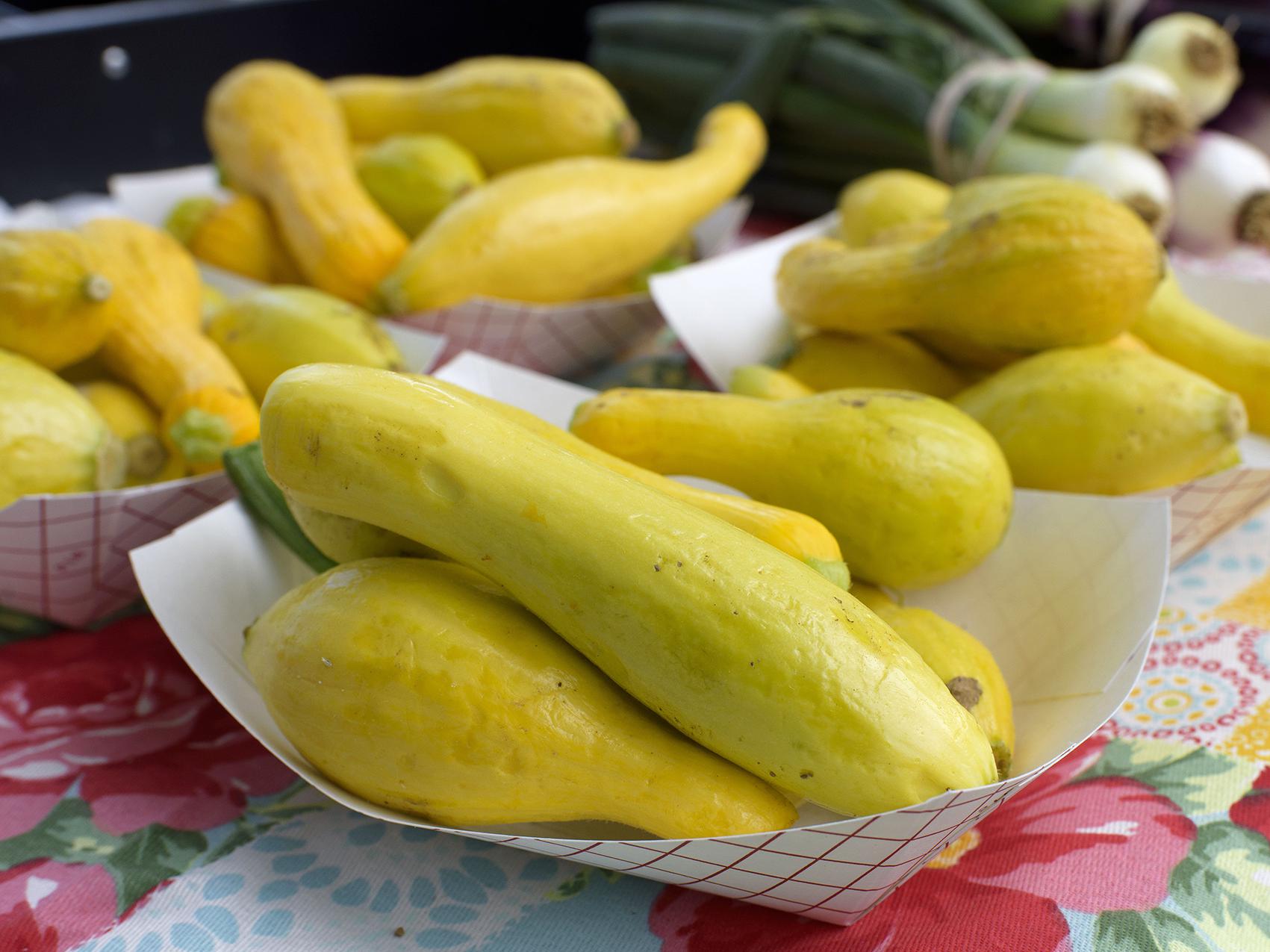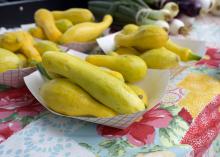Information Possibly Outdated
The information presented on this page was originally released on May 12, 2017. It may not be outdated, but please search our site for more current information. If you plan to quote or reference this information in a publication, please check with the Extension specialist or author before proceeding.
Producers plant truck crops early, avoid most problems
RAYMOND, Miss. -- This year's early spring temperatures allowed some fruit and vegetable growers to plant their crops a little earlier than usual.
Jeremy Maness, Mississippi State University Extension agent in Smith County, said growers in his county have not experienced any problems so far despite a late freeze.
"Everything is going well," he said. "Tomatoes grown in greenhouses or high tunnels are ready now. We project watermelons will be ready around mid- to late June, and field tomatoes should be ready to start coming off the vine around the first week of June."
In north Mississippi, a few fruit crops bloomed early.
“The earliest blooming varieties of peaches and blueberries were hurt by the late freeze,” said Jeff Wilson, Extension horticulture specialist at the MSU North Mississippi Research and Extension Center in Verona. “But we think that both crops will be ready for harvest around the usual time because these crops were only about 10 days ahead before the freeze.”
Shoppers can find yellow squash, strawberries, greenhouse tomatoes and other early-producing fruits and vegetables at farmers markets now.
Although most growers have not faced major challenges so far, blueberry growers should remain vigilant in scouting for spotted wing drosophila -- a type of fruit fly that can quickly cause large yield losses of small fruit crops, including blueberries, figs and blackberries.
“This pest will continue to be a problem for large-scale producers,” said Eric Stafne, Extension fruit and nut specialist. “It is unlikely to be a problem for homeowners who consume or freeze their fruit soon after harvest, but those who market it can have ill effects since there may be eggs, larvae and adult fruit flies on or in the fruit. Although it is not harmful to consume the insect, it does soften the fruit, makes it leak and provides an ‘ick’ factor that consumers dislike.”
The insect can be monitored with homemade traps, but a good integrated pest management strategy is necessary to manage the pest. Growers can consult with local Extension agents for proper management methods.
Locally grown horticultural crops remain popular among consumers. The high demand has increased the number of farmers markets around the state. Mississippi now has 89 farmers markets registered with the Mississippi Department of Agriculture and Commerce. In 2010, the state had 52 registered farmers markets.
This level of demand has created plenty of room in the market for new growers and more crops.
“Blackberries, strawberries, mayhaws and grapes are all in demand, but we have very few producers,” Stafne said. “Small, local markets are good for these types of crops. However, there may not be enough money in these crops to justify commercial-scale production for some growers.”
Maness said there is room in the market, not just for new crops, but for crops that won’t grow in the summer heat, such as yellow squash.
“Around mid-June, the plants die because of the heat,” Maness said. “Our growers end up taking those plants out and putting in late tomatoes, but if growers could put in high tunnels to regulate the temperature, they could continue to sell squash.”
Horticultural crops, which include fruits, vegetables, nuts and nursery plants, ranked 11th among Mississippi’s 16 agricultural commodities and had an estimated value of $105 million in 2016, according to statistics gathered by the MSU Division of Agriculture, Forestry and Veterinary Medicine.







